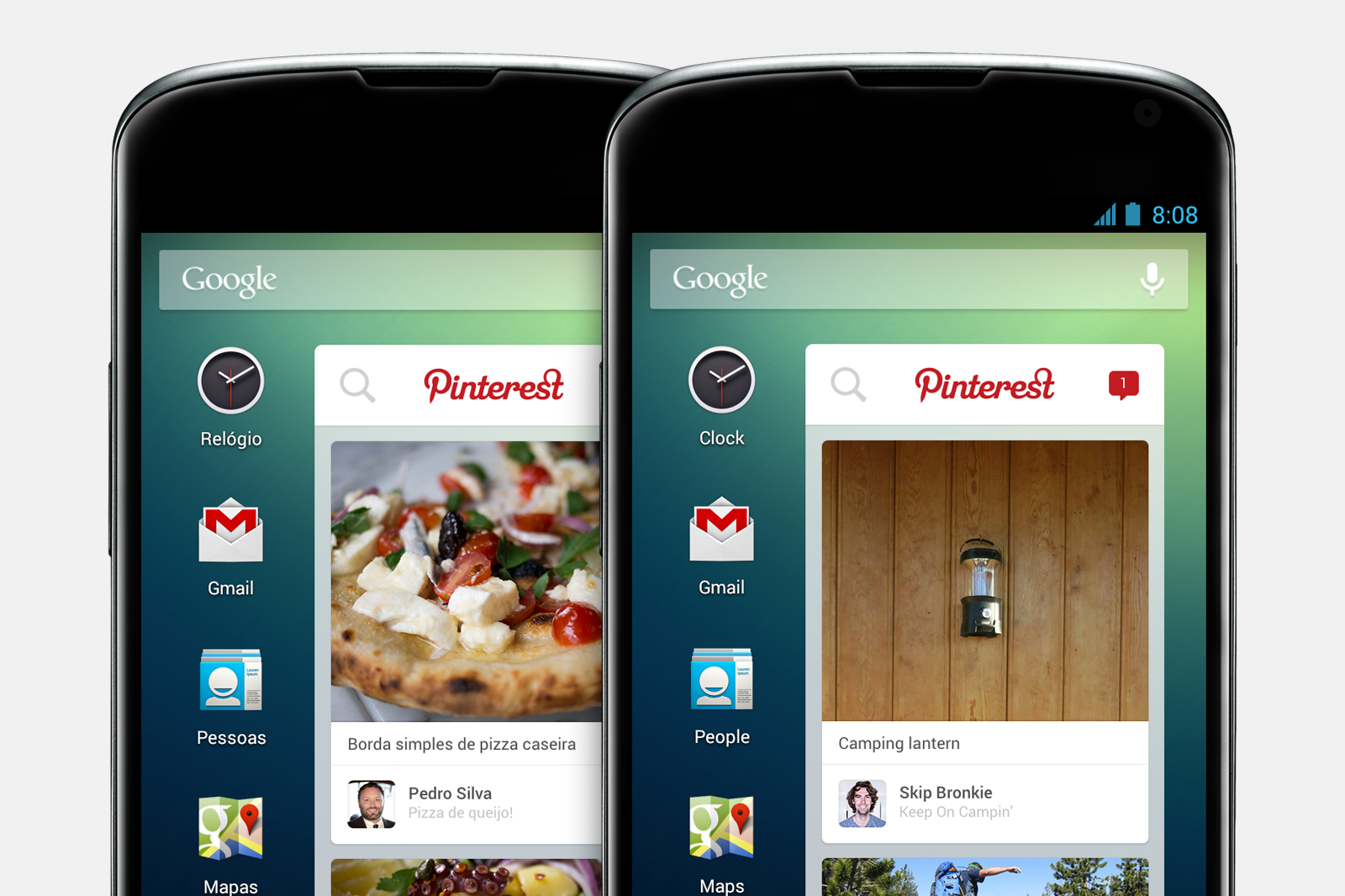
Pinterest is ramping up its business development with new ad units, and also with some key partnerships with third parties. Today the company is announcing a deal with Telefonica, the mobile carrier giant with some 316 million customers, to preload a widget on new handsets that it sells in Latin America and Europe, starting first with its O2 UK subsidiary.
For now, the widget is exclusive to Telefonica. Commercial terms have not been disclosed.
The company says that part of the reason for pursuing a deal with Telefonica is because it’s already scoring very well with its customer base. Since January, monthly active users in areas where Telefonica is active have gone up by over 130%, the company says.
“Interests are global, which is why we want Pinterest to be available wherever people want to find ideas for the everyday projects in their lives and get inspired for the future,” said Don Faul, Head of Operations, Pinterest, in a statement. “Telefónica is one of the world’s most advanced communications companies, and together we can provide a one-of-a-kind mobile experience to new and existing pinners around the globe.”
For Pinterest, it’s not a move to a “Pinterest Phone” but when you consider how large the widget is when it is active (see picture above), it is evidence of how Pinterest is looking for a way to rise above the throng of apps that consumers install on their devices and then rarely use regularly, and making more of an effort to beef up its presence on the screen that is most present in people’s lives.
For Telefonica, it gives the carrier one more way to help differentiate itself from other carriers — the widget deal is exclusive to it for a period of time — and to potentially net in a couple of key demographics where Pinterest is strong: females both younger and older.
With companies like Apple, Google and others creating integrated experiences based around smartphone platforms that offer their own app storefronts and billing, carriers like Telefonica have been relegated to secondary players when it comes to mobile services beyond basic voice and data.
Many of carriers’ efforts to turn that around have not fared well. For example, witness Telefonica recently axing its Tu Me app, meant to compete against the likes of WhatsApp. It will be interesting to see whether the Telefonica deal with Pinterest picks up traction, and whether the the carrier uses that to build out more by adding marketing, billing and other mobile services over time.
Indeed, you might even read that kind of implication into Telefonica’s statement on the deal (bolding mine):
“To be the first partner for Pinterest is a huge opportunity and a great testament to Telefónica’s reach, as well as Pinterest’s global ambitions,” Wayne Thorsen, VP of Global Partnerships, Telefónica Digital. “Our agreement is the foundation of a deeper relationship. As the Pinterest service explodes in popularity, we are now in a position to bring the best possible mobile Pinterest experience to our Android customers around the world.”
Built by Pinterest, the widget will provide access to the image-based social network directly from the home screen, giving users one-tap access to popular pins, as well as a personalised feed when logged in — personal both for a user’s account, and for the location she/he is in at that moment. The widget will come preinstalled as well as part of a new version of the app in Google Play.
With its social graph and content largely built around images instead of words, Pinterest has an opportunity to pick up international users quickly without some of the same barriers for interaction across the wider network than you may get in other one-to-many social networks like Twitter. The latter has been working on an instant translation service powered by Bing to try to bridge that gap.
This is one of several moves that Pinterest has made in the last year to ramp up its presence outside of the U.S. after opening dedicated sites in countries like the UK and France.
Link to Pinterest’s blog post here.